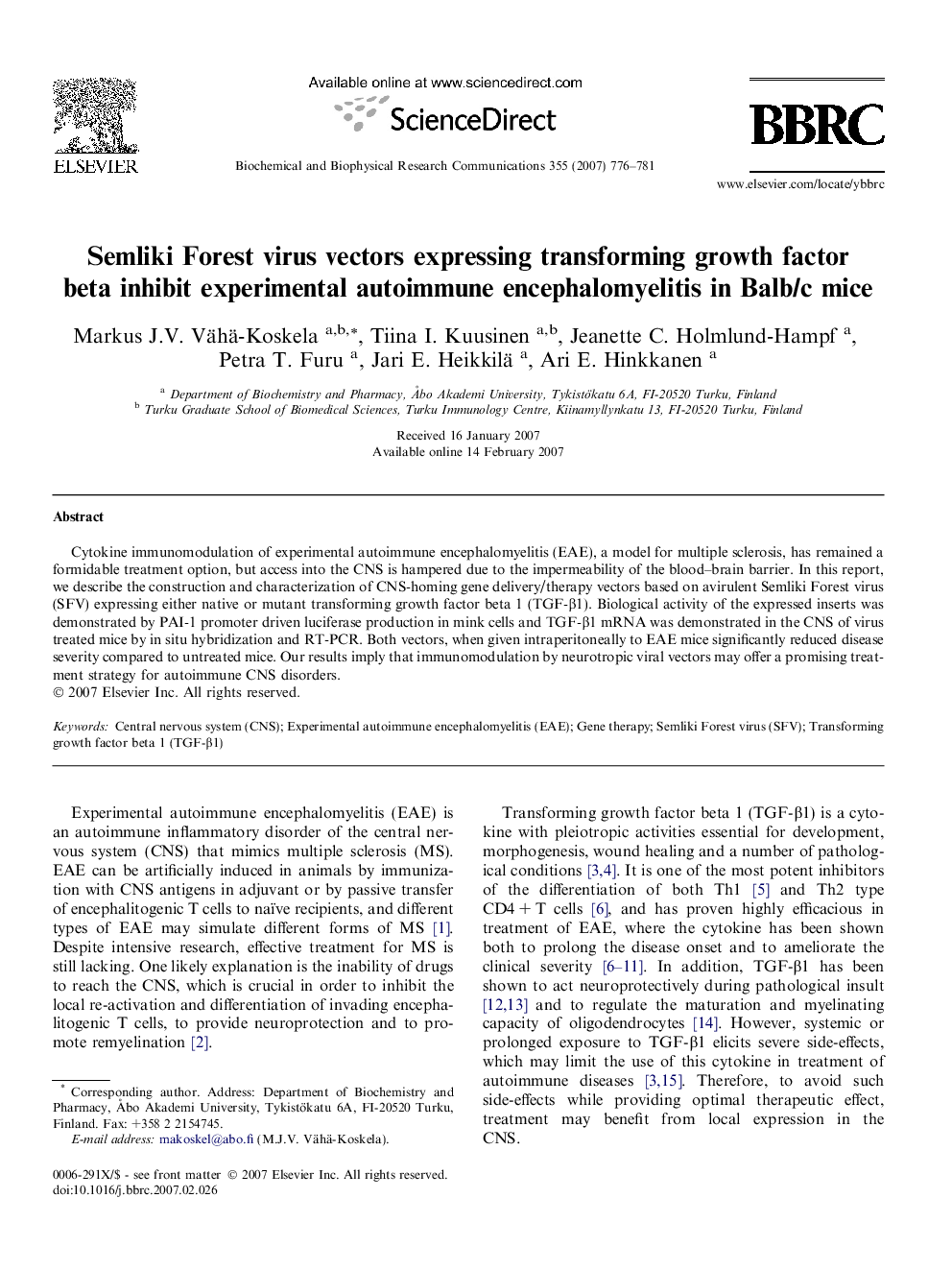| Article ID | Journal | Published Year | Pages | File Type |
|---|---|---|---|---|
| 1938897 | Biochemical and Biophysical Research Communications | 2007 | 6 Pages |
Abstract
Cytokine immunomodulation of experimental autoimmune encephalomyelitis (EAE), a model for multiple sclerosis, has remained a formidable treatment option, but access into the CNS is hampered due to the impermeability of the blood-brain barrier. In this report, we describe the construction and characterization of CNS-homing gene delivery/therapy vectors based on avirulent Semliki Forest virus (SFV) expressing either native or mutant transforming growth factor beta 1 (TGF-β1). Biological activity of the expressed inserts was demonstrated by PAI-1 promoter driven luciferase production in mink cells and TGF-β1 mRNA was demonstrated in the CNS of virus treated mice by in situ hybridization and RT-PCR. Both vectors, when given intraperitoneally to EAE mice significantly reduced disease severity compared to untreated mice. Our results imply that immunomodulation by neurotropic viral vectors may offer a promising treatment strategy for autoimmune CNS disorders.
Keywords
Related Topics
Life Sciences
Biochemistry, Genetics and Molecular Biology
Biochemistry
Authors
Markus J.V. Vähä-Koskela, Tiina I. Kuusinen, Jeanette C. Holmlund-Hampf, Petra T. Furu, Jari E. Heikkilä, Ari E. Hinkkanen,
